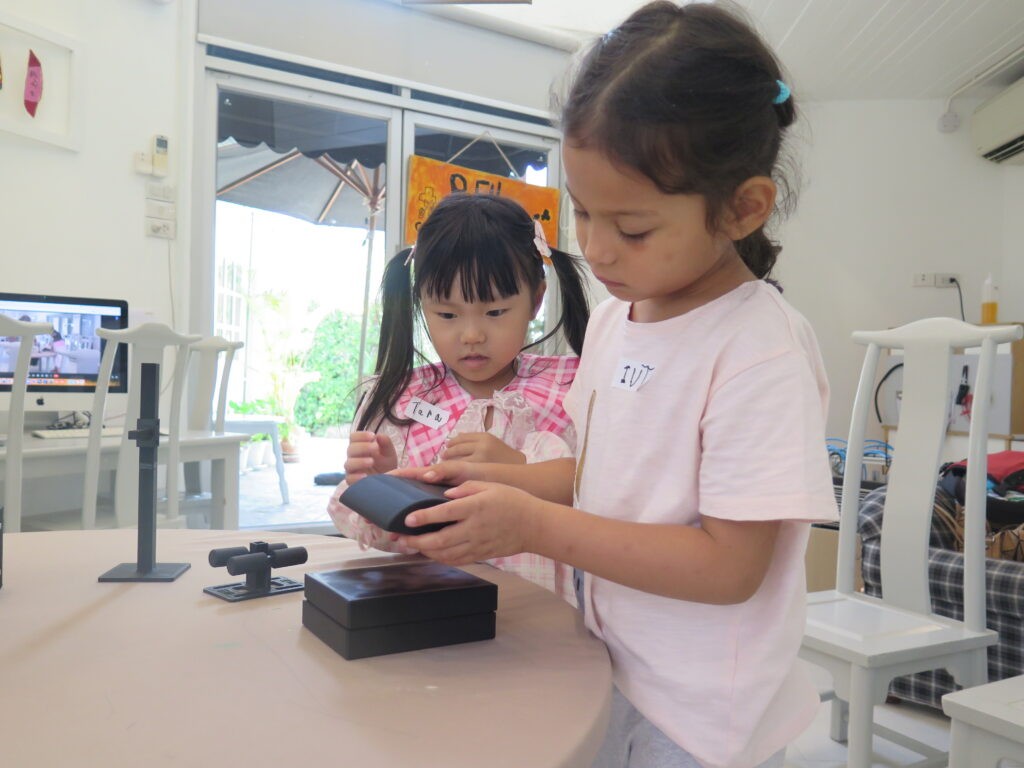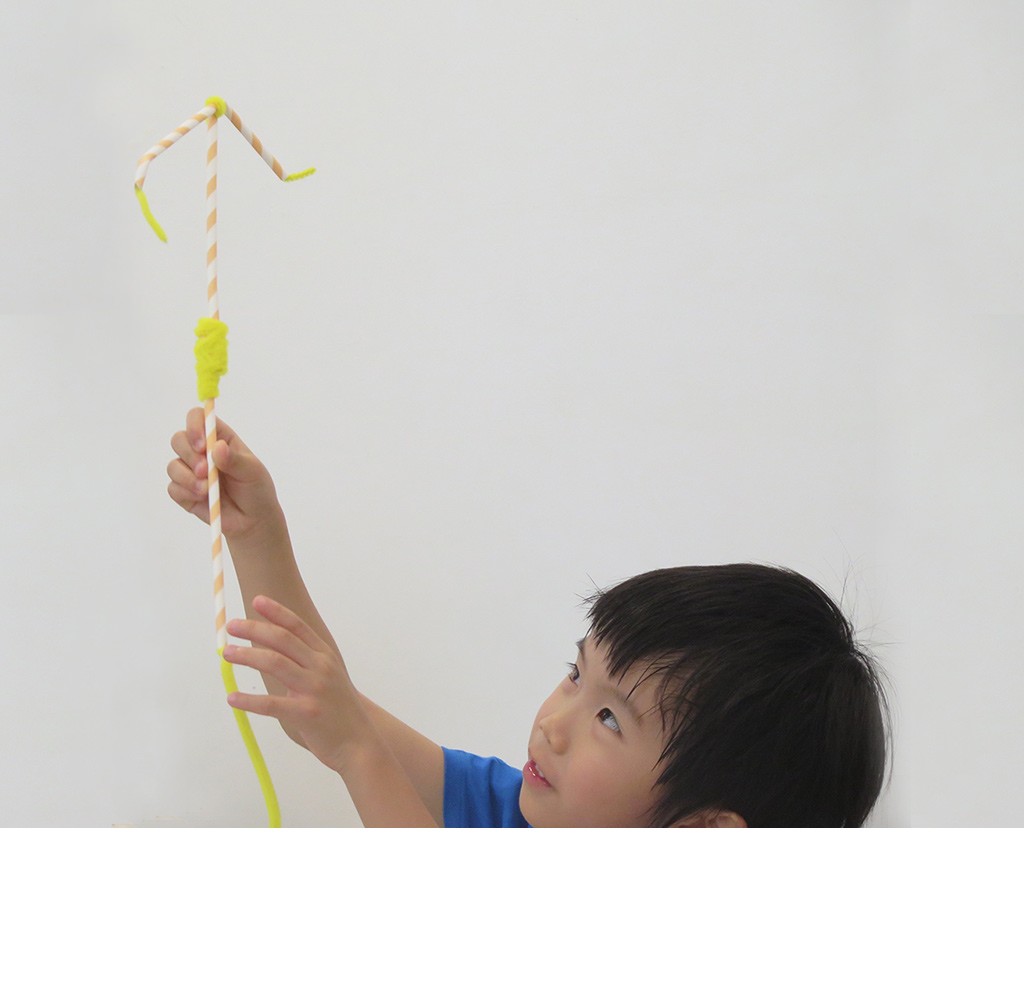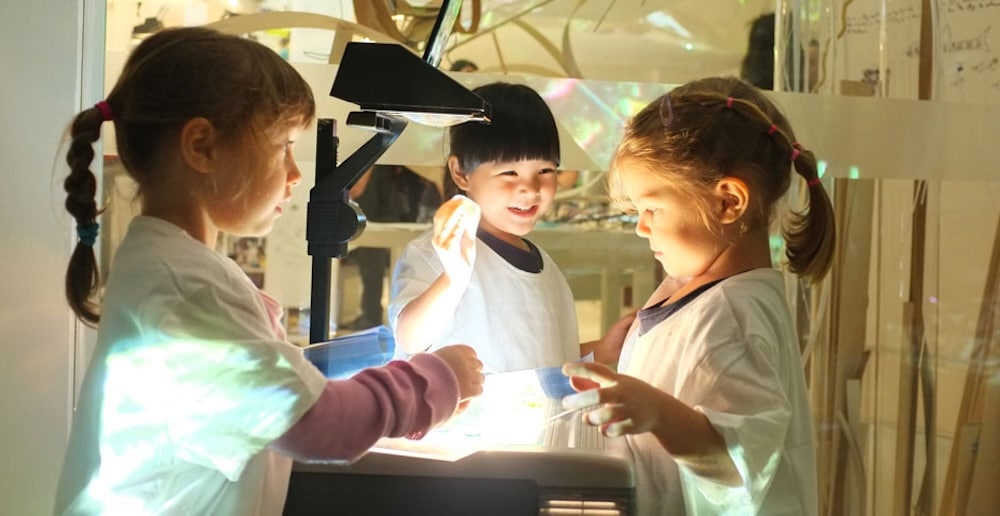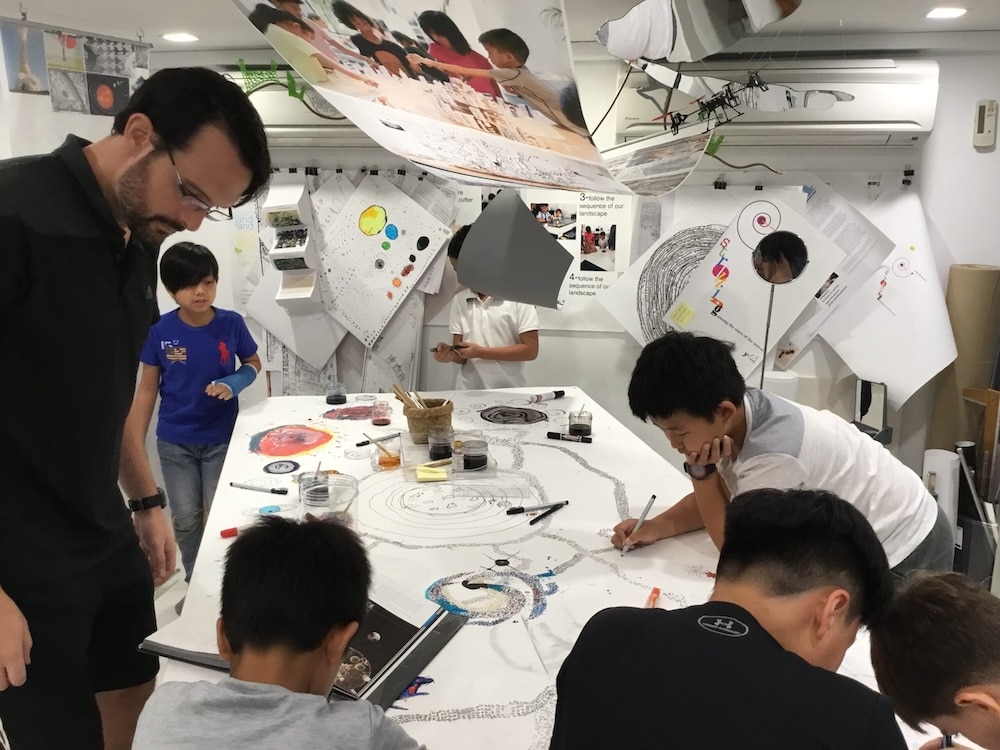The K2 children in our Country School are exploring ‘Landscapes of Design’ as part of their project learning.
To support this work, we welcomed two experts to campus: Kheng, an Engineer and Designer who works in cotton and plastic manufacturing, and Lilly, who owns Mindful Sparks, delivering mindfulness training and curricula for educators.
The interactive workshop brought design concepts to life for the children and integrated mindfulness into the learning experience. Kheng showcased his work on different products, including Project X-19 a hand-sanitising wristband, and the KEWB, a multifunctional gym equipment system.
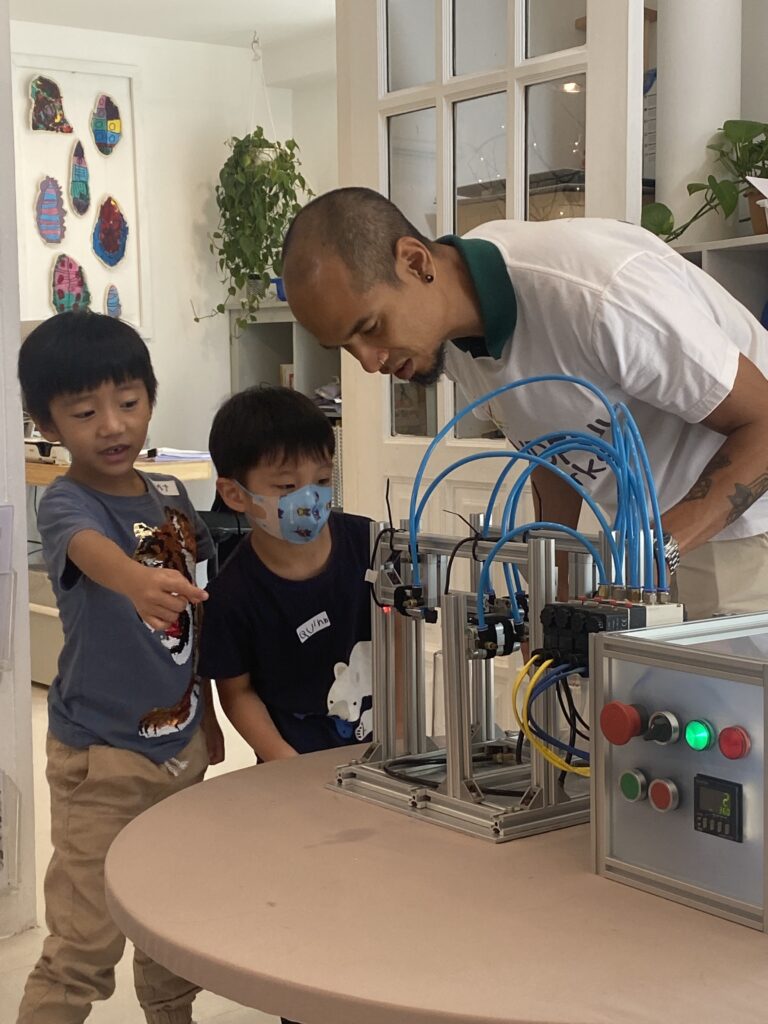
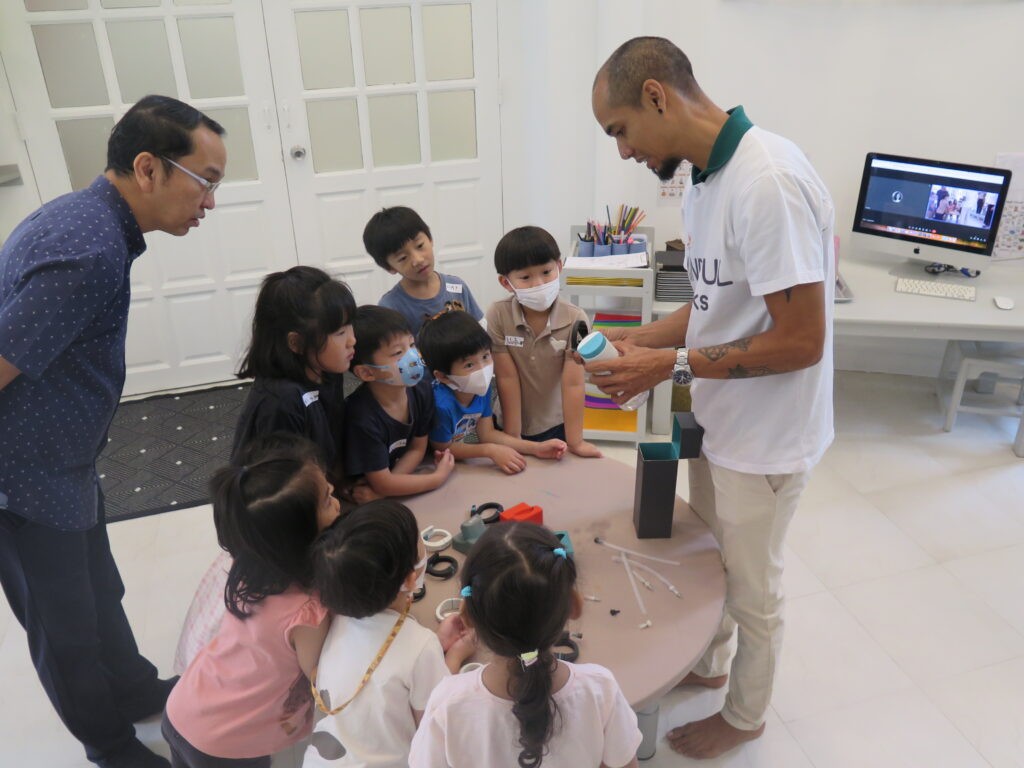
The children had the opportunity to learn about different products and design processes – identifying the ‘problem’, the planning of a product, and the importance of testing, and also shared their own ideas and designs as part of their Project work.
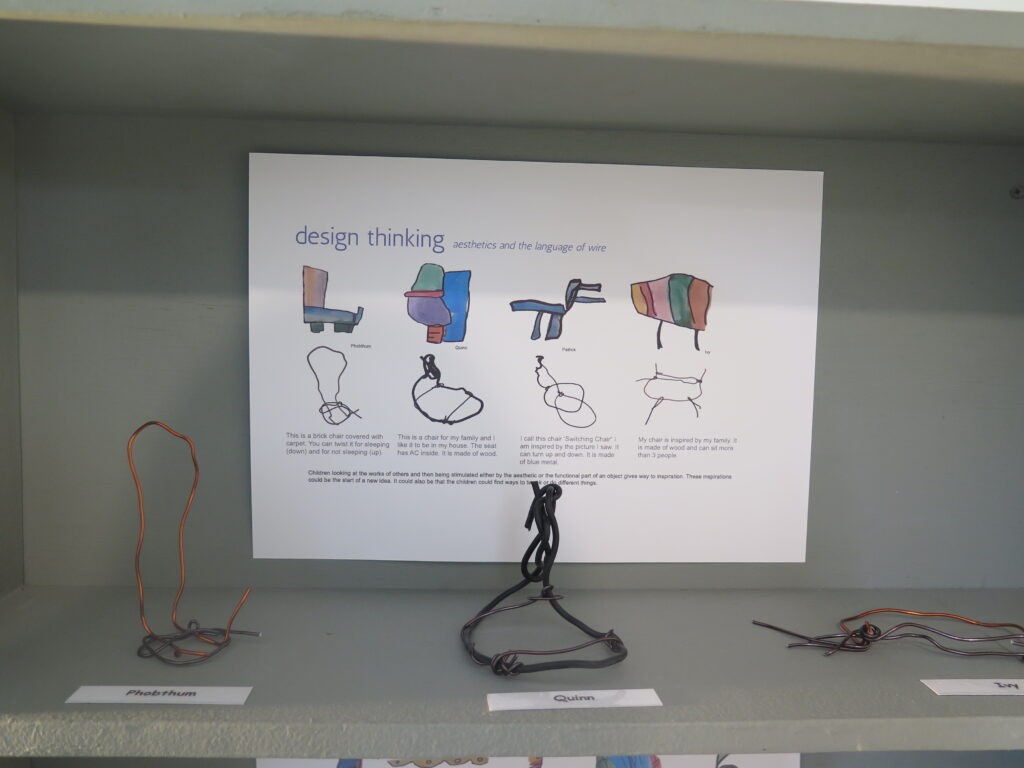
They were especially curious about how different pieces and mechanisms worked together and were keen to draw connections between what they were seeing and how things work in their own lives. With the raw materials of pipe cleaners and straws, our K2 children set about creating ‘prototypes’ of things they were drawn to such as planes, flags, and kites. Some children focused on refining their ideas whilst others created entirely new products. Taking a step into the world of Design Thinking, the children practiced innovation, problem-solving, collaboration, and critical reflection.
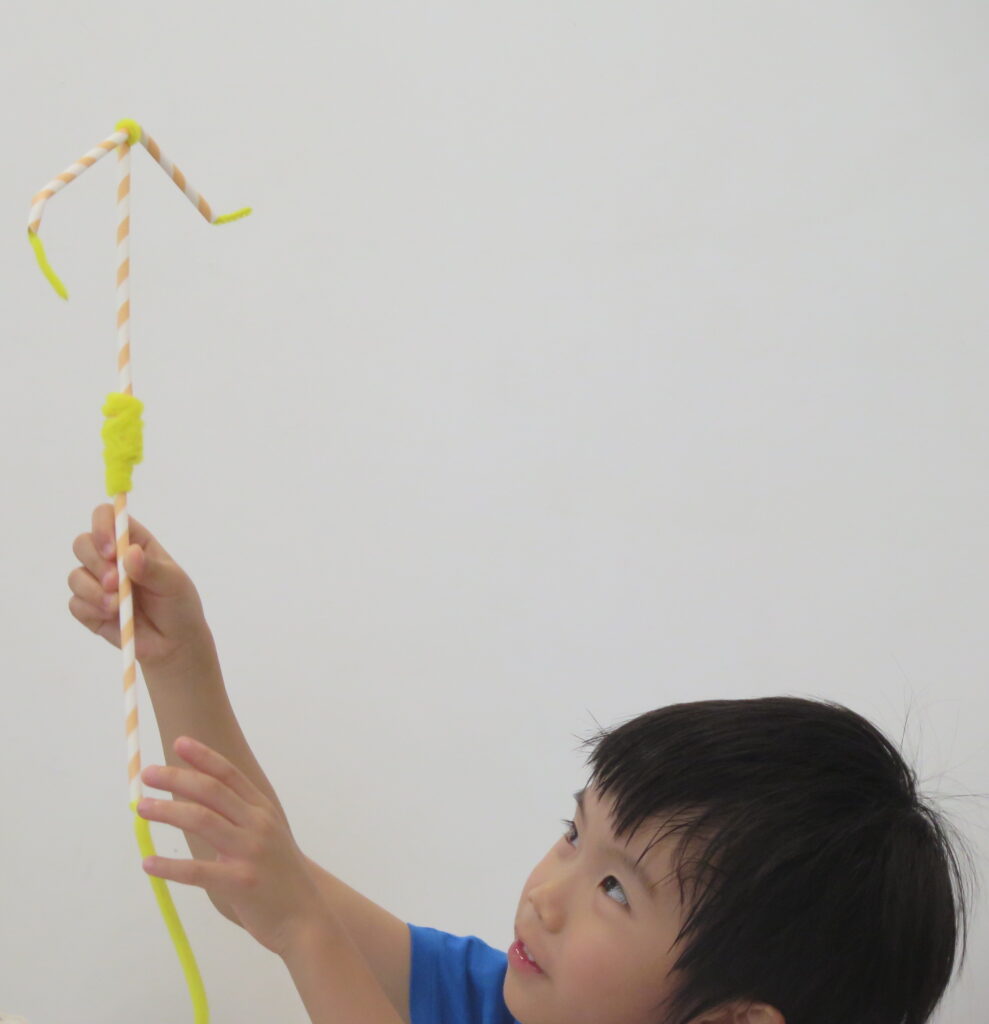
Through such inquiry-based learning experiences we nurture a growth mindset whereby children consciously acknowledge that their brains are growing all the time through effort, which allows them to tackle difficult problems, persevere in the face of frustrations or failure, and learn from criticism.
Lilly’s mindfulness techniques can be a critical tool in building this growth mindset; through play-based activities, Lilly encourages the use of compassionate language and opens up space for conversations which focus on what children are thinking, feeling, and any physical sensations they experience.
Awareness of the present moment helps children with their social and emotional regulation, which is critical to optimal learning and development.
